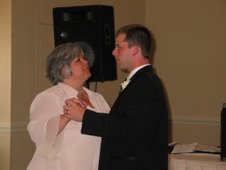I think that it is significant that all of the writers that we have read had either an extremely difficult life, were addicted to some type of drug, were promiscuous, or suffered from mental illness. This certainly leads me to hypothesize that one or some combination of all of these are instrumental to the creative process for what comes to be known as good literature. Of course, the other side to that equation is that the creative process is the cause rather than the manifestation. I would never suggest to know the answer....I just find it strange.
If you haven't already guessed, I tend to take a simplistic view of things...I believe that good literature is anything that causes....or allows the reader to think. For me, it doesn't require that the subject of the thought provoked be of any particularly philosophical or historical consequence...just that the reader expand their thinking to include just one, previous unacknowledged thought. I must say that most of the authors we have read provoked new thoughts for me.
